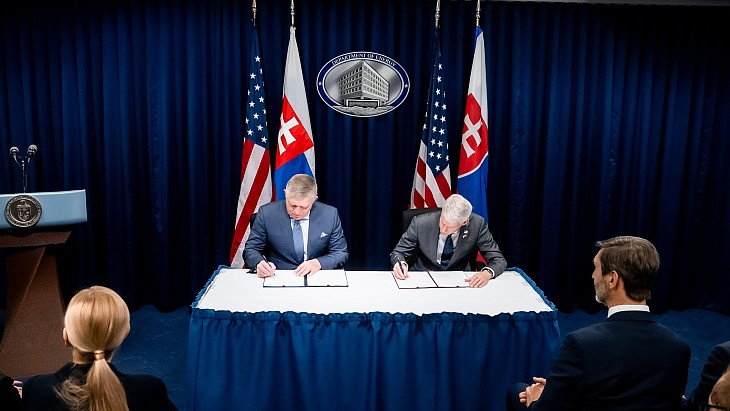In February 2022, French President Emmanuel Macron announced that the time was right for a nuclear renaissance in France, saying the operation of all existing reactors should be extended without compromising safety and unveiling a proposed programme for six new EPR2 reactors, with an option for a further eight EPR2 reactors to follow. The first three pairs of EPR2 reactors are proposed to be built, in order, at the Penly, Gravelines and Bugey sites. Construction is expected to start in 2027.
However, since that announcement, "there has been no common framework for coordination between the various stakeholders", the French Nuclear Strategic Committee (CSFN) said.
The nuclear industry, government and trade unions have now signed a strategic contract, through which they agree to cooperate in preparing for life extension and new build projects. The contract is the result of extensive consultation under the leadership of CSFN and establishes a shared vision and strong commitment for the 2025-2028 period.
The contract was signed during a ceremony Paris on 10 June attended by 600 people from the French nuclear supply chain. It was signed by Minister of Energy and Industry Marc Ferracci and Minister of Economy Eric Lombard, together with the heads of key industry players (including EDF, Orano, CEA, Framatome and ANDRA), as well as professional organisations within the nuclear sector.
The agreement is organised around four fundamental major axes: industrial performance (guaranteeing the quality and timely completion of projects by relying on a robust, competitive, and collaborative supply chain); competences (addressing the recruitment and training needs to achieve an average of 10,000 hires per year, while developing employees' skills); research and innovation (dedicating substantial resources to R&D to accelerate the deployment of next-generation technologies, including small modular reactors, as well as advancements in fuel cycle and radioactive waste management); and transitioning to a low-carbon energy (embedding the sector within the broader framework of carbon neutrality by ensuring low-emission electricity production, supporting European greenhouse gas reduction targets).
"The strategic contract of the nuclear sector reflects the shared determination of the State and industry actors to launch a coordinated action plan to revive the French nuclear sector, a driver of energy independence and technological innovation," the Ministry of Energy said. "President Emmanuel Macron, in his Belfort speech, emphasised the vital importance of nuclear energy in the fight against climate change and energy sovereignty. This contract now provides the operational tool to realise this ambition."
CSFN will oversee the implementation of the contract, working closely with government departments and stakeholders. Its mission is to coordinate efforts, support priority projects, evaluate progress, and adapt actions to the needs of the sector and its regions.
"This sector contract marks a new step forward in the implementation of an ambitious and comprehensive industrial approach," Minister of Energy and Industry Marc Ferracci said in a speech during the signing ceremony. "Ambitious, because the State is investing massively in the future of the sector with, on the one hand, the extension of the existing fleet after 50 and then 60 years and, on the other hand, new construction: six new EPR2 reactors, and the prospect of eight additional ones. Ambitious, too, because the State also supports research and innovation in SMRs, with the emergence of a thriving ecosystem."
Minister of Economy Eric Lombard added: "The period we are covering, from 2025 to 2028, is crucial. It is part of a dynamic revival of nuclear power, following the speech by the President of the Republic in Belfort in 2022. This momentum, which we are realising today, embodies a response to the challenges of our time: energy sovereignty in an international context marked by increasing geopolitical tensions, energy transformation in a climate emergency and the goal of carbon neutrality by 2050, and the competitiveness of our French and European economies."

_80647.jpg)



_19544_40999.jpg)

_66668.jpg)






